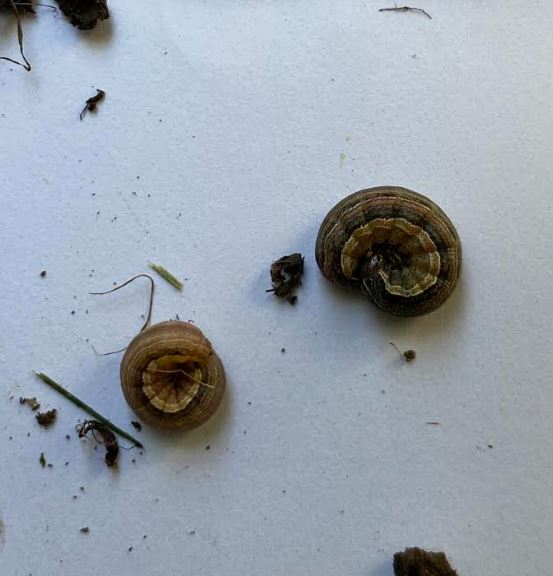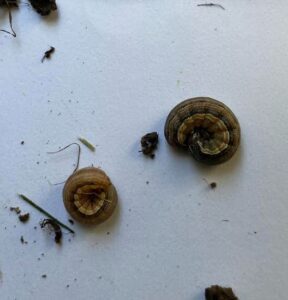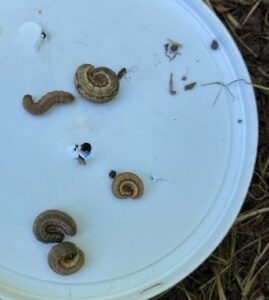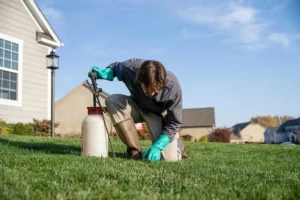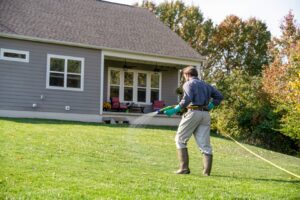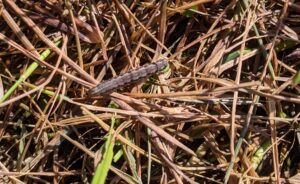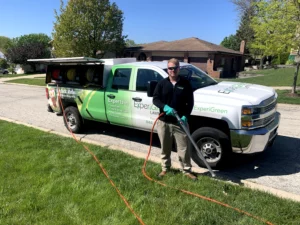Recently, we were called out to one of our client’s lawn to assess brown areas. The brown isn’t terribly surprising since the Dayton and Cincinnati areas are about 2 inches below average rainfall for June. Without 1″ of irrigation weekly, it would be expected to see a lawn turn brown in color as the lawn enters dormancy.
However, what we found in addition to dry turf made us quite disappointed – Armyworms!
We love the Turf team at OSU so we reached out to Dr. Dave Shetlar to confirm what we are seeing. His response is summarized:
Yes, this is the “common” armyworm, not the fall armyworm. The common armyworm or as you have mentioned, the “true” armyworm, is a native species that has larvae and prepupae that can survive our winter temperatures. The first adults usually fly in late April into early May and often lay eggs in sprouting corn or winter wheat. After the first generation of larvae finish feeding, the new adults often emerge when linden trees are in full bloom. The adults of this generation then usually lay eggs in turf grasses and the larvae of this generation often cause damage in turf in late June into mid-July. They then seem to disappear, but they may have smaller populations in turf grass in August.
When common armyworms or the fall armyworms (like last year) significantly attack turf, they will first thin the turf, but the last instar larvae will often eat all the green leaves and grass stems down to the ground! This doesn’t kill the turf, but it can expose the crowns to direct sun which can overheat or desiccate the crowns. This can kill the turf. It was our recommendation last summer that lawns that were denuded should be lightly irrigated every afternoon to cool down the crowns and encourage regrowth. As soon as there is good cover, the irrigation can be withdrawn.
To summarize Dr. Shetlar, these Armyworms are not quite as aggressive or damaging but they can still kill your lawn if the right situation occurs. It is our position that the stage is set with extremely dry and stressed lawns right now. If Armyworms begin to eat your lawn’s leaf blades, you need to respond promptly with daily watering, as he said.
However, we do offer a Surface Insect application program that both kills insects (Armyworms) in your lawn on contact and creates a barrier for future insects. If you are concerned about Armyworms again this year, enrolling in our Surface Insect program is a wise, proactive investment.
If you are wondering if you have Armyworms now, we shot this video that explains how to do a “Soap Test” which pushes Armyworms to the top of your lawn for air as the soap briefly suffocates them. As always, please call or email us if we can be of further service to you and your lawn.

